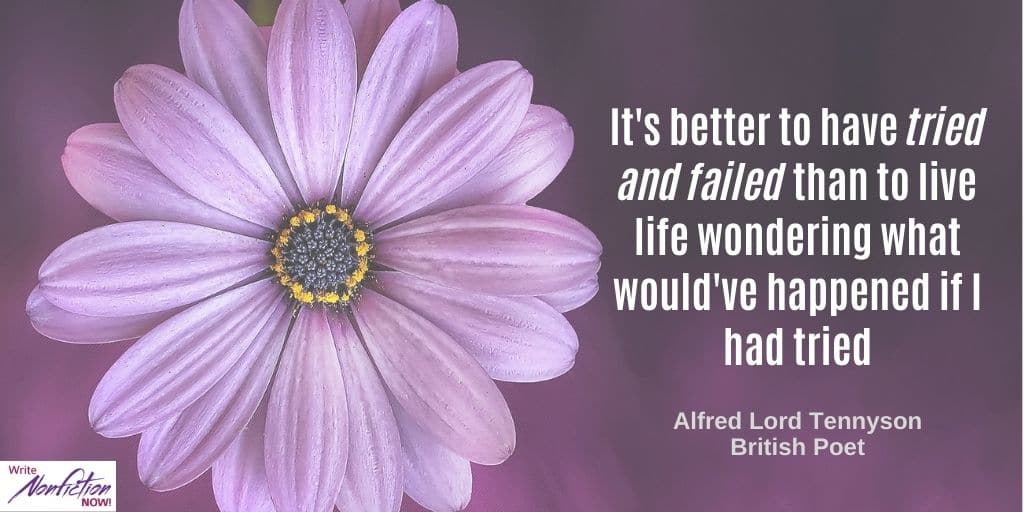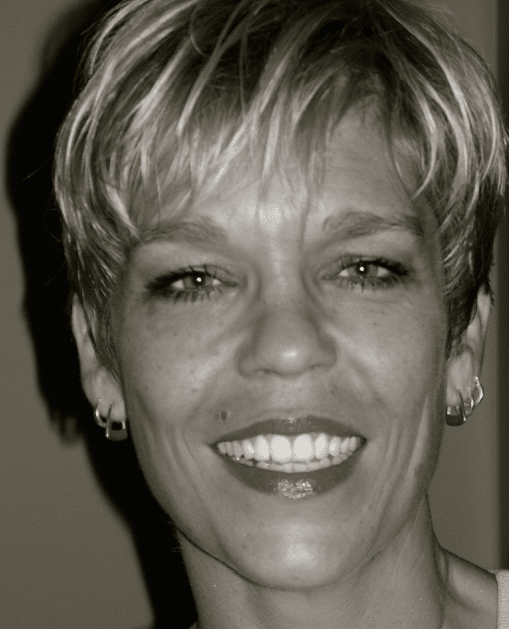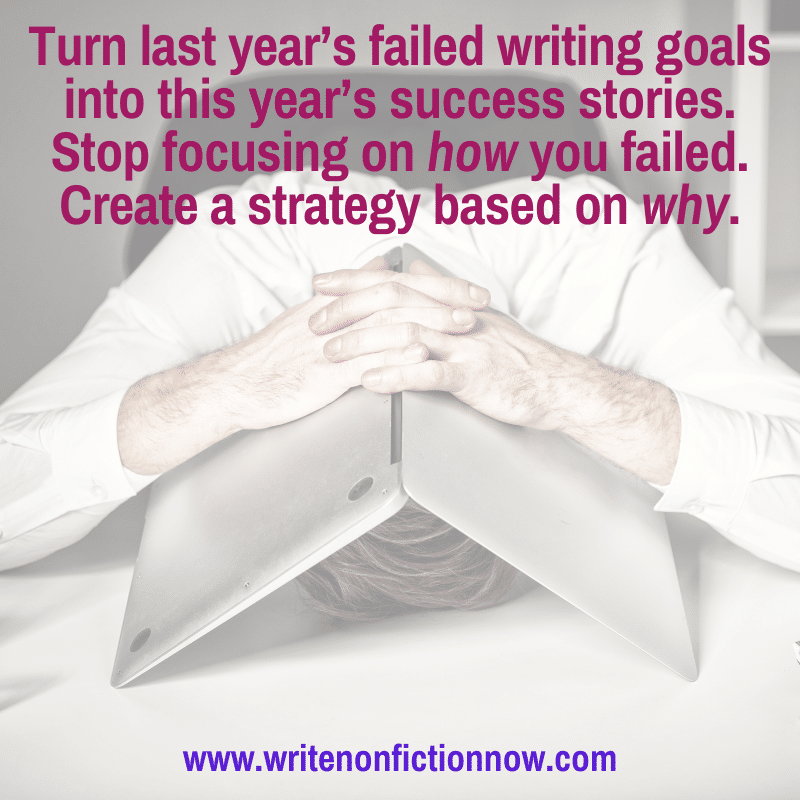Last year is not one many of us will look back on fondly. For most of us, 2020 was an Annus Horribilis. Too much of the year was out of our control. Therefore, it’s no wonder that the writing goals and new year’s resolutions we set last January faded by March and were a distant memory by May. No matter how you’re feeling about last year’s achievements, you need to congratulate yourself.
After all, as Alfred Lord Tennyson taught, even your biggest failure beats not trying.
Failure Leads to Negative Beliefs
Each time we don’t achieve our goals, human nature moves us toward a feeling of failure. But that word has negative connotations that don’t support moving toward new or old goals.
When I don’t reach my writing goals, I feel disappointed. I think about all the things I should, or could, have done to achieve success. Then I get frustrated with myself for not trying hard enough. These emotions lead to negative beliefs about my writing skills and ability to succeed, and the feeling of failure engulfs me like a heavy, dark cloak.
This cycle of emotions is necessary, but we have to find a way to navigate past it. If we hold onto these feelings for too long, they’ll stop us from chasing new goals or ambitions. We’ll do anything to escape that fear of failure, even if it means giving up altogether.

Reframe Failure—From How to Why
So how do you move on after failure? Reframe your emotional response with an analytical one.
Rather than focusing on how you failed, look at why instead. Once you acknowledge why you didn’t achieve your goals, you can use those insights to motivate and inspire you to set writing goals for the New Year.
By all means, feel your disappointment, frustration, anger, guilt, uncertainty, uselessness, worthlessness, or whatever emotional spin-cycle you’ve set for yourself. It’s important to acknowledge and feel our emotions—not stuff them down.
Once you’ve stopped spinning, though, move past analyzing how you failed—all the things you did or didn’t do. Learn from your mistakes, and a door opens to let you grow and flourish.
Failure will only define you if it signals the end of your writing journey. You still have dreams and aspirations about writing a popular blog, creating a compelling lead magnet, or writing a nonfiction book.
Failure is a hurdle, not the end of the race. So what if you caught your toe on the hurdle and fell flat on your face? Get up. Dust yourself off. Lift your foot higher next time.
In fact, the starter’s pistol just sounded for 2021. It’s time to get moving!
Do You Understand Why You have Failed Writing Goals?
I set myself a huge list of blogging and author goals for 2020. Even though I had a busy writing year and made some progress, I didn’t complete them all. So I looked back on why I had failed writing goals. This retrospective helps me refocus my energy for 2021. It’s no fun admitting failure, but I’m sharing mine with you to show how I identified the why—the reason.
Why I Failed to Achieve my #1 Writing Goal
Goal: Publish a Cambodia Travel Guide
I intended to complete a Cambodia Travel Guide lingering ever since we returned from our trip a couple of years ago. I’ve been blogging my book and invested time and effort to write multiple blog posts, review my travel research, and track down updated information online.
Writing a first draft is challenging. The endless rounds of self-editing can drain the dwindling enthusiasm out of your creative well until you feel you have nothing more to give. I lost enthusiasm for this project and used a continual stream of excuses to procrastinate—I abandoned my 80,000 words because I lost my motivation.
I’ve come too far on this project to give up on it, and I need to discover how to motivate myself to finish.

Why I Failed to Achieve my #2 Writing Goal
Goal: Write the first draft of a marketing book
I’ve written and self-published the first three books in my How to Write and Self-Publish a Travel Guide series. My 2020 goal was to write the first draft of book four: How to Market Your Book. This topic is critical and one with which many authors struggle.
I’ve read blog posts, attended webinars, listened to podcasts, signed up for e-learning classes, and bought far too many books on this topic. I’ve also test-driven marketing techniques to assess which ones would work for my target audience.
I wanted to simplify and streamline the book marketing strategies and techniques to stop my readers from getting overwhelmed. But I became a victim of that very rabbit hole and got snowed under by research. My first draft didn’t get written.
It’s another project I’ve come too far on, and I need to discover ways to streamline the creation of my first draft, so it doesn’t overwhelm me—or my readers.

Uncover WHY You Didn’t Achieve Your Writing Goals Last Year
Looking at the how helps me drill down on the why. For me, I missed the mark on two projects due to being unmotivated and overwhelmed. I’m ready to create a strategy for 2021 so that 2020’s hurdles don’t stop me again. (In part two of this Disaster Recovery series, I’ll dive into the solutions I created to clear my hurdles.)
Now it’s your turn… Uncover the why behind last year’s failed writing goals.
Accomplishing this challenge is simple but not easy and requires just four steps.
- Before you sit down to write your New Year’s writing resolutions or goals, revisit last year’s goals.
- Identify the failed writing goals—the ones you didn’t achieve.
- Evaluate why you didn’t meet those goals. What was the reason? (No excuses…real reasons.)
- Determine a strategy for meeting your goals successfully in the new year. That means developing a plan to avoid or address the reasons you didn’t achieve them last year. (More on this in the next post, which will be published in two weeks.)
This process is invaluable for setting you up for success in the new year. Without understanding why you didn’t achieve your writing goals last year, it’s impossible to increase your success level in the next 12 months.
Share with me why you failed to achieve last year’s writing goals and how you plan to succeed this year. By leaving a comment, you help other nonfiction writers discover their reasons and create new strategies, too.
Don’t forget to share this post with a friend…and watch for the second part in two weeks!
About the Author
Jay Art ale abandoned her corporate career to become a digital nomad and full-time writer. She’s an avid blogger and a nonfiction author helping travel writers and travel bloggers achieve their self-publishing goals. Join her at Birds of a Feather Press where she shares tips, advice, and inspiration to writers with an independent spirit.
ale abandoned her corporate career to become a digital nomad and full-time writer. She’s an avid blogger and a nonfiction author helping travel writers and travel bloggers achieve their self-publishing goals. Join her at Birds of a Feather Press where she shares tips, advice, and inspiration to writers with an independent spirit.
 Do you want to learn more about becoming a nonfiction author? Check out the Nonfiction Writers’ University. Get the basic education you need and the coaching to help you succeed as a nonfiction writer. Take advantage of monthly live educational and group coaching events. Enjoy a 30-day trial membership for only $1.
Do you want to learn more about becoming a nonfiction author? Check out the Nonfiction Writers’ University. Get the basic education you need and the coaching to help you succeed as a nonfiction writer. Take advantage of monthly live educational and group coaching events. Enjoy a 30-day trial membership for only $1.
Do you want a more advanced approach to your nonfiction writing education? Join the Nonfiction Writers’ University MASTERS program. Receive ongoing live Certified High Performance Coaching, Author Training, and Authorprenuership Training as well as monthly educational and group coaching events. Learn all the steps to becoming a successful—and profitable—author. Discover how (finally) to write consistently, boldly, enthusiastically, and productively. Develop the mindsets, strategies, habits of the world’s most successful writers. Click here to learn more.
